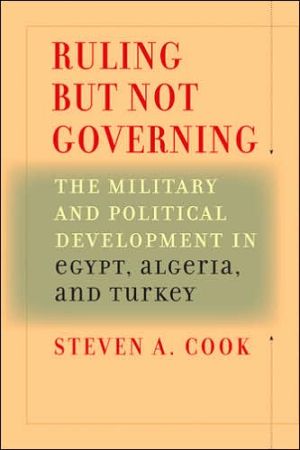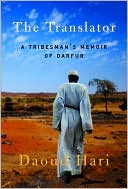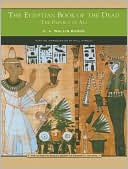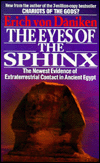Ruling But Not Governing: The Military and Political Development in Egypt, Algeria, and Turkey
Ruling But Not Governing highlights the critical role that the military plays in the stability of the Egyptian, Algerian, and, until recently, Turkish political systems. This in-depth study demonstrates that while the soldiers and materiel of Middle Eastern militaries form the obvious outer perimeter of regime protection, it is actually the less apparent, multilayered institutional legacies of military domination that play the decisive role in regime maintenance.\ Steven A. Cook uncovers the...
Search in google:
Ruling But Not Governing highlights the critical role that the military plays in the stability of the Egyptian, Algerian, and, until recently, Turkish political systems. This in-depth study demonstrates that while the soldiers and materiel of Middle Eastern militaries form the obvious outer perimeter of regime protection, it is actually the less apparent, multilayered institutional legacies of military domination that play the decisive role in regime maintenance.Steven A. Cook uncovers the complex and nuanced character of the military's interest in maintaining a facade of democracy. He explores how an authoritarian elite hijack seemingly democratic practices such as elections, multiparty politics, and a relatively freer press as part of a strategy to ensure the durability of authoritarian systems. Using Turkey's recent reforms as a point of departure, the study also explores ways external political actors can improve the likelihood of political change in Egypt and Algeria. Ruling But Not Governing provides valuable insight into the political dynamics that perpetuate authoritarian regimes and offers novel ways to promote democratic change. Foreign Affairs Here are three Middle Eastern case studies of regimes whose roots, ideology, and modus operandi are closely tied to their respective military establishments. Egypt, Algeria, and Turkey, for all their many differences, present a striking structural similarity in one aspect of governance: the military establishment in each country ultimately controls matters without being tied down with day-to-day administration. The military is thus, in Cook's phrase, "ruling but not governing." Elections, constitutions, legislative bodies, political parties, and the media, although surely more than mere façades, are malleably subject to this overarching control. The working out of this system is demonstrated in the vacillating relations with Islamist forces, marked by co-optation into the system at times, harsh crackdowns at others. Even though Turkey offers four examples of outright military coups (the last in 1997), that country seems now best poised to break out of this authoritarian vicious cycle: it is seeking to meet the standards for membership in the European Union, and another military intervention would scotch that prospect.
Preface ixA Logic of Regime Stability 1The Egyptian, Algerian, and Turkish Military Enclaves: The Contours of the Officers' Autonomy 14The Pouvoir Militaire and the Failure to Achieve a "Just Mean" 32Institutionalizing a Military-Founded System 63Turkish Paradox: Islamist Political Power and the Kemalist Political Order 93Toward a Democratic Transition?: Weakening the Patterns of Political Inclusion and Exclusion 133Notes 149Index 183
\ International AffairsCook's argument is solid, coherent and well supported by the empirical data he provides.\ — Omar Ashour\ \ \ \ \ \ ChoiceCook has produced a sensitive, insightful analysis of the political role of the military in three Middle Eastern countries... Recommended.\ \ \ Political Science QuarterlyCook's book makes an important contribution to the literature on persistent authoritarianism in the Middle East and North Africa.\ — Stephen J. King\ \ \ \ \ \ Insight TurkeyAn impressive comparative study of the disputed political regimes of Algeria, Egypt, and Turkey... will likely initiate a new literature on the international and domestic efforts necessary to democratize the Middle East.\ — Hüseyin Alptekin\ \ \ \ \ \ Foreign AffairsHere are three Middle Eastern case studies of regimes whose roots, ideology, and modus operandi are closely tied to their respective military establishments. Egypt, Algeria, and Turkey, for all their many differences, present a striking structural similarity in one aspect of governance: the military establishment in each country ultimately controls matters without being tied down with day-to-day administration. The military is thus, in Cook's phrase, "ruling but not governing." Elections, constitutions, legislative bodies, political parties, and the media, although surely more than mere façades, are malleably subject to this overarching control. The working out of this system is demonstrated in the vacillating relations with Islamist forces, marked by co-optation into the system at times, harsh crackdowns at others. Even though Turkey offers four examples of outright military coups (the last in 1997), that country seems now best poised to break out of this authoritarian vicious cycle: it is seeking to meet the standards for membership in the European Union, and another military intervention would scotch that prospect.<\ \ \ \








